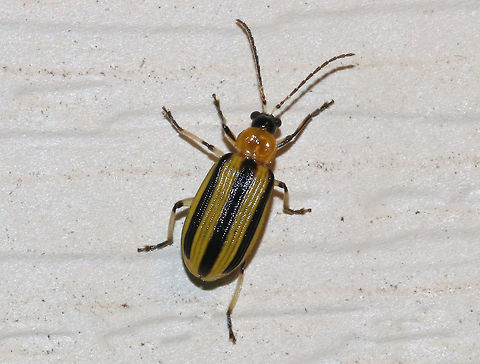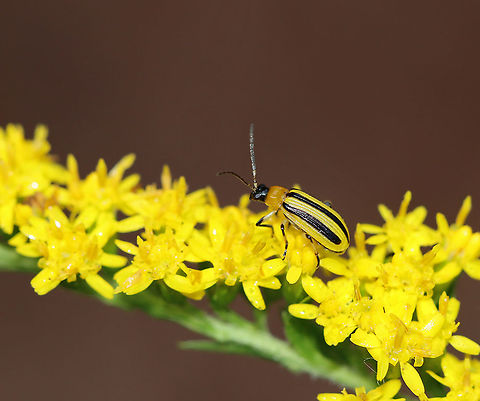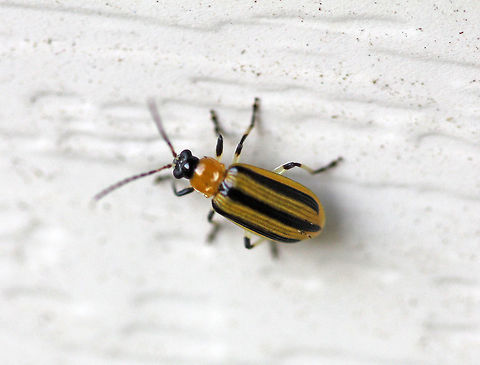
Appearance
The striped cucumber beetle is a small beetle approximately half a centimeters in length, and characterized by brown-yellow elytra completely covering the abdomen and longitudinally transversed by three thick black stripes. It superficially resembles the western corn rootworm , another serious crop pest. However, the ventral abdominal surface of ''A. vittatum'' is black where that of ''D. virgifera'' are yellow, and the elytra of ''D. virgifera'' often do not extend the full length of the abdomen.
Behavior
Large numbers of adults emerge from diapause in the spring to feed on the foliage, flowers, and pollen of cucurbit species. Between one and two generations of beetles can pass in a season depending on the region, with the final generation settling into another period of diapause to wait out the winter.Females will lay eggs on or in the immediate vicinity of the stem of a viable host plant, often a member of the genus ''Cucurbita''. Eggs are a bright orange color and less than a millimeter in diameter. Eggs hatch after a short period and larvae feed on the roots of the plant.

Cultural
Striped cucumber beetles can cause significant amounts of foliar damage to cucurbit crops, particularly to older plants, and larval root feeding also damages the plant. The most damage is often seen in the early part of the year during the emergence of overwintering beetles, but feeding damage continues throughout the entire growing season. Furthermore, adult beetles are one of two known vectors of the bacterial wilt ''Erwinia tracheiphila'', an incurable and often fatal disease of cucurbits. Bacteria passes from the frass of the beetle into feeding wounds that reach into the vascular tissues of the plants, where they proliferate to the point of blocking the xylem.References:
Some text fragments are auto parsed from Wikipedia.